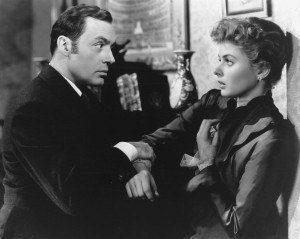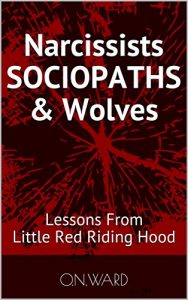
The Fear Factor: How One Emotion Connects Altruists, Psychopaths, and Everyone In-Between: Part A
Recently, I finished reading the book The Fear Factor: How One Emotion Connects Altruists, Psychopaths, and Everyone In-Between by Dr. Abigail Marsh, Associate Professor of Psychology and Interdisciplinary Neuroscience at Georgetown University. Her book sparked some “light-bulb moments” that I wanted to share. The first two are below. The third and fourth will follow next week. Dr. Marsh and many researchers refer to these disordered individuals as ‘psychopaths.’ In my 2015 book, I referred to the same individuals as ‘sociopaths.’
Psychopaths and highly altruistic people differ on how they experience fear, but not necessarily other emotions.
In her book, Dr. Marsh reviews research that shows that psychopaths and highly altruistic people differ profoundly in how they experience fear as well as in how they perceive others’ fear. It is likely that the rest of us probably fall on a continuum in between these two extremes.
Fear is processed in the amygdala, an ancient part of the brain associated with several emotions. On average, brain scans of psychopathic children show no amygdala response (zero, none!) when viewing pictures of faces with intense fearful expressions. Psychopaths also have impaired personal fear responses, and, as a result, tend to have fearless personalities. Consistent with this inability to experience fear personally and perceive it in others, the amygdala of psychopaths is small relative to non-psychopaths.
In contrast, people who are unusually altruistic (such as those who would donate a kidney to someone they do not even know) have larger amygdala, are especially likely to notice stress/fear in others, and are instinctively motivated to take action to reduce another person’s fear even if it puts the altruistic person at risk (like donating a kidney). They are so motivated to lessen others’ fear that some express that they almost can’t help themselves from doing so.
Could this “fear factor” help account for why sociopaths are attracted to empathetic people and vice versa?
Could it be that this key difference between psychopaths and highly empathetic/altruistic people helps explain what attracted my now ex-husband, someone I came to believe is a sociopath, to me? Could it also help explain my attraction to him as well as what helped keep me trapped in the relationship?
Light-bulb moment number one.
My sensitivity and empathetic response to other people’s fear makes me a desirable target. If I cannot detect the difference between real fear and the “manufactured” fear of a sociopath who is playacting (and they are expert actors), then I’ll be very easy to manipulate.
If a sociopath communicates fear (“I’m so afraid I won’t get that promotion unless I work late and on weekends.” “When other men pay attention to you, I’m afraid of losing you.” “I’m afraid you are not as devoted to me as I thought you were.” etc.), a highly empathetic person, like me, will cater to the sociopath’s whims even at the expense of her own interests.
From my personal hell of unwittingly being married to a sociopath for years, I know the drill all too well. When I almost left “Paul” (not his real name) several years into our marriage, he acted afraid of losing me. Once he did this, I was putty in his hands, and to diminish his fear, I agreed to stay and try to work on our marriage. Here’s how I wrote about this in my book:
“Paul’s limp body folded in on itself, and he collapsed into my lap like a terrified little boy. My resolve melted. I had never seen anyone so vulnerable, so in need…Something inside me stirred. Finally, he tapped the part of me that I valued most, but the part of me that, if unprotected, could be turned against me—my empathy.” From “Husband, Liar, Sociopath: How He Lied, Why I Fell For It & The Painful Lessons Learned”
Light-bulb moment number two.
The fact that my response to others’ fear is readily observable, makes me, and others like me, an easily identified target. Although, I haven’t donated a kidney to a stranger (or to anyone else), I am highly empathetic, and my empathy is evident in my actions. Here’s an excerpt from early in my book.
“In a sea of competitive MBA students, I was the one always wanting to help and to play nice. I tutored struggling classmates for free and ran study sessions in my areas of expertise—marketing and advertising. If someone was bullied by another student, I offered a shoulder to cry on and a sympathetic ear. Everyone knew I was happy to lend others my notes.” From Husband, Liar, Sociopath: How He Lied, Why I Fell For It & The Painful Lessons Learned”
So, by being ourselves, empathetic people may be sending out homing signals to well-camouflaged sociopaths like “Paul.” “Pick me! Pick me!” We need to stop being so trusting and we need to learn to be careful so that our empathetic response to assuage other people’s fear doesn’t trap us in a relationship with a sociopath. Sociopaths don’t experience fear, but they can certainly “manufacture” it and wield it as a manipulative weapon that is particularly effective with highly empathetic people.
 Identifying names, places, events, characteristics, etc. that I discuss here and in my books have been altered to protect the identity of everyone involved.
Identifying names, places, events, characteristics, etc. that I discuss here and in my books have been altered to protect the identity of everyone involved.




































 How psychopaths behave as children — described by the psychopaths themselves
How psychopaths behave as children — described by the psychopaths themselves
Escapefor1
Thank you for this. After I divorced my probable Dark Triad ex-H, I got into another relationship with someone I had known a long time and trusted. Turned out he had a lot of issues in the intervening years. So I crossed a hard barrier of providing help and temporary funds to him, who was clearly good for it. It all went wrong and I asked him to leave a couple of years later. Another toxic, troubled relationship with a hint of narcissism/psychopath underlying it all, even if just a hint, and so I was kicking myself all over again. Why did I help him so much when I could not afford to? Well, he was desperate and suicidal, with nobody else he wanted to ask to help or that could. So I did. I gave what I should not have. I overgave. I really have not fully forgiven myself for crossing this boundary when I knew I should not. It was reinstated more impregnable than ever. I have been tested on this, and withstood further challenge. Probably nobody else could have gotten me to respond in such a way. He was a giant among men, a rare person who seemed to genuinely care. My empathy for his fear (thinking we had been through similar things, so I could relate) overcame my fear for my own needs, and I helped where I should not have. This explains why and at least allows me to forgive myself a bit. We like to forget we are animals and how much biology does underlie.
O.N.Ward
Hi–
Thank you for mentioning that you found this helpful. The book was quite interesting. So much of the literature focuses on the disordered individual yet does not deal with the normal psychological processes that explain the experience of being targeted by a sociopath as well as trying to recover from that experience. There has to be a reason these masked vultures are so effective, that the experience is often described as “soul-destroying,” and that moving on can prove so difficult. Due to victim blaming (including self-blaming) it’s all too easy to dismiss the targets of sociopaths as somehow profoundly flawed, when the truth more often is that we are simply profoundly “human.” I think understanding our own experience is really important to help us stop blaming ourselves, to learn from the experience, and to eventually move forward.
p.s. Speaking of blaming ourselves, I wrote about this last week. Victim blaming and self-blaming are also part of being “human,” but the research shows that while it tends to be the automatic response, it is often not based in fact, and, therefore, this victim-blaming and self-blaming is very misplaced.